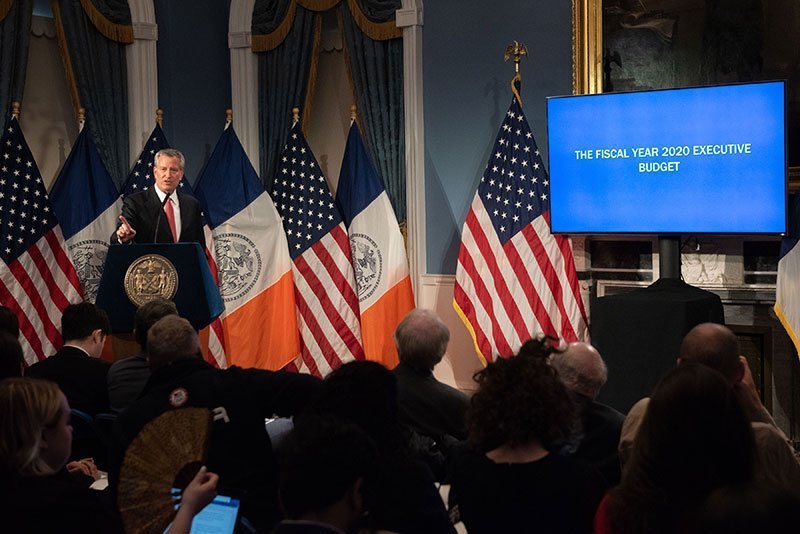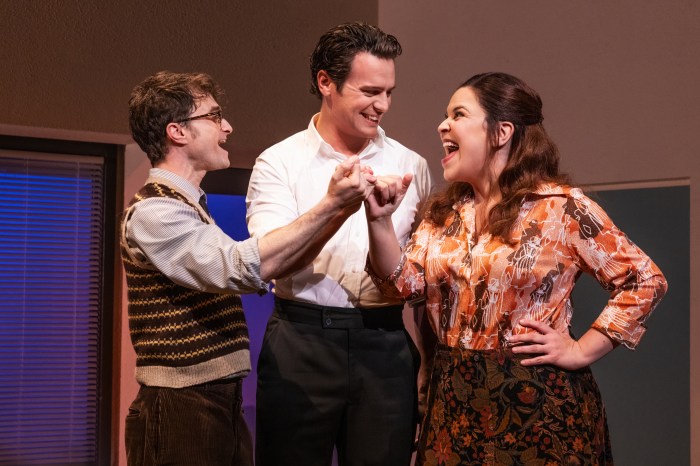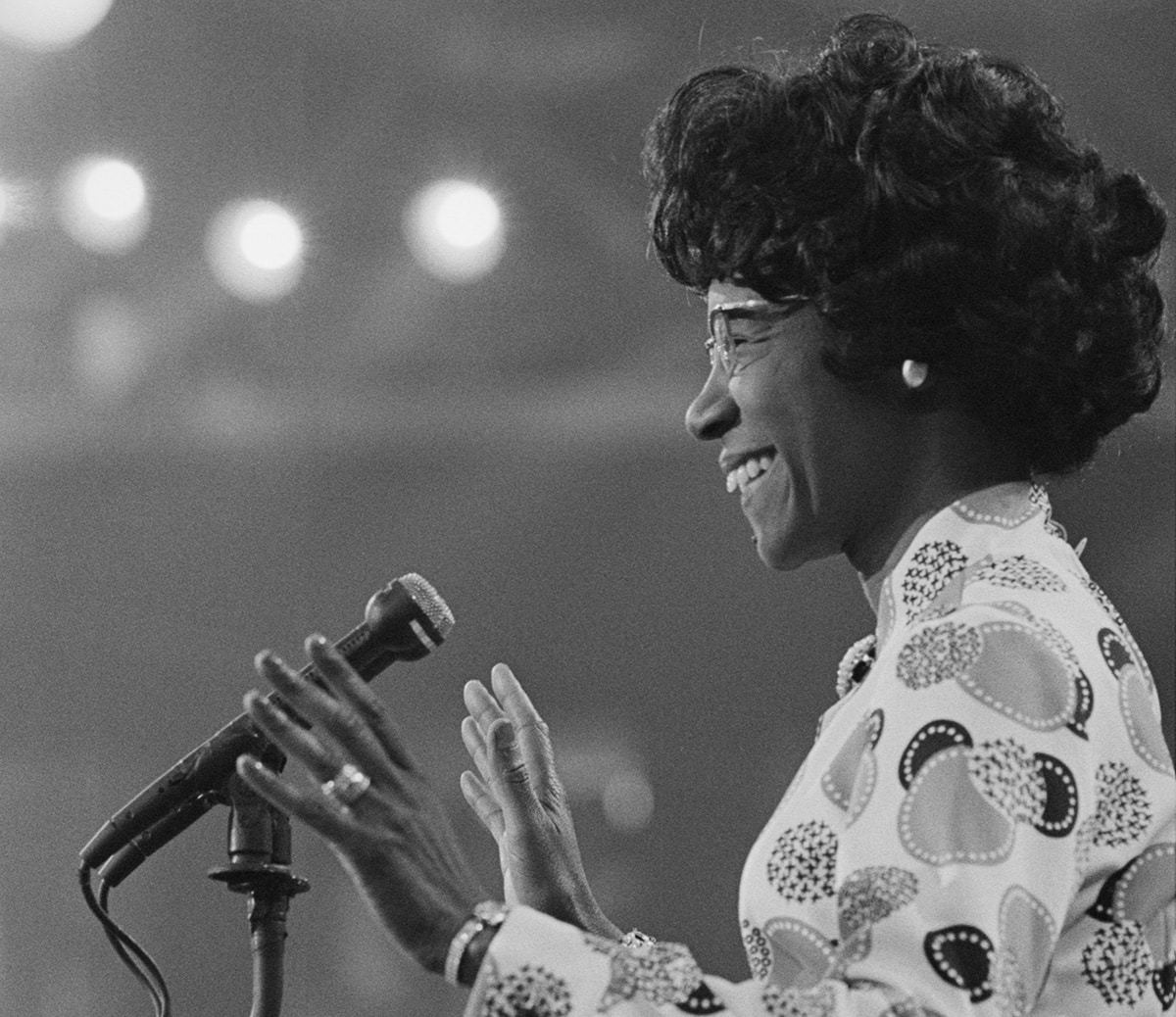Mayor Bill de Blasio today presented a $92.5 billion executive city budget for Fiscal Year 2020.
The spending plan is about 4% over his $89.06 billion executive budget he delivered last year for Fiscal Year 2019.
While the budget shows an increase in spending, it does slash $916 million in savings from FY 19 including $629 million in cuts through agency efficiencies, programmatic cuts and a hiring freeze.

“In February, I spoke about uncertainty in our economic future and announced my Administration’s first-ever mandatory savings program. We’re still in an era defined by fiscal caution, which means we’re focused on deepening our savings and making strategic investments in core priorities that continue to make New York a fairer city,” said de Blasio.
The city also picked up over $600 million in spending through costs shifts that the state put on the city. This includes $125 million for financial assistance to families in need (TANF); $96 million in unfunded election reform mandates; $59 million in vital health services for vulnerable New Yorkers, including services that help combat measles; and $25 million in education funding shortfall.
Conversely, the spending plan found $916 million in savings including deepening the hiring freeze by removing 1600 vacant positions ($116 million); more efficient methods for the purchasing of goods and services at DOE ($27 million); $104 million in cuts at the Department of Education, which includes the elimination of extended learning time at Renewal and Rise schools ($19M); modest cuts to cultural institutions, including subsidies ($6 million); right-sizing classroom slots for afterschool programs ($2.5 million); and providing senior NYCHA residents access to Community Centers by consolidating under-used senior clubs ($900,000).
Of the total, $92.5 billion FY 20 budget, about $51.32 billion goes towards providing city services like picking up the garbage, police, firefighters, teachers, social services, etc. About $39. 24 billion or roughly 40% goes to pensions for retired city workers.
On the revenue side, about a third or $29.5 billion comes into the city’s coffers from property taxes and about $33.6 billions comes through other taxes.
In a joint statement on the executive budget, the City Council Leadership including Speaker Corey Johnson, Finance Committee Chair Daniel Dromm (D-Queens) and Capital Budget Subcommittee Chair Vanessa L. Gibson (D-Bronx) said the council is disappointed that Mayor de Blasio has failed to fund many significant citywide Council priorities in the Fiscal 2020 Executive Budget, including many social service programs as well as $250 million in reserves.
“The Council did not propose $1 billion in Alternative Savings to the PEG Program to only have the Administration take many of those savings and not fund many of our priorities – priorities that were included in the Fiscal 2019 Adopted Budget,” the lawmakers said in a statement.
“The Council will continue to fight for our priorities and programs that make our City stronger. That includes Fair Student Funding and pay parity for human service providers and early childhood educators.”
The council will now take the executive budget and come up with their budget priorities and the council and the mayor will come up with a final budget, which must be passed by June 30 as the fiscal year starts July 1.

















